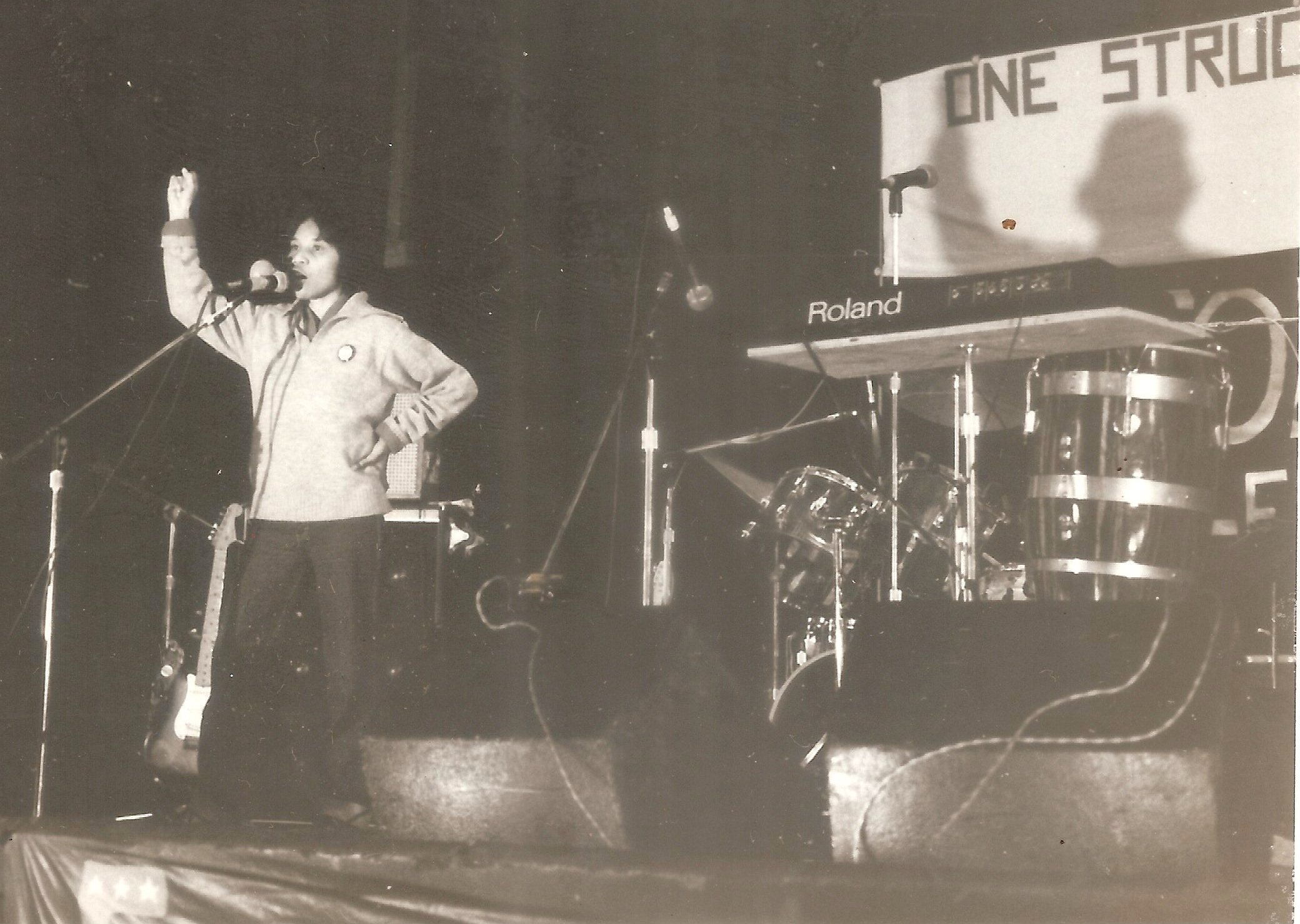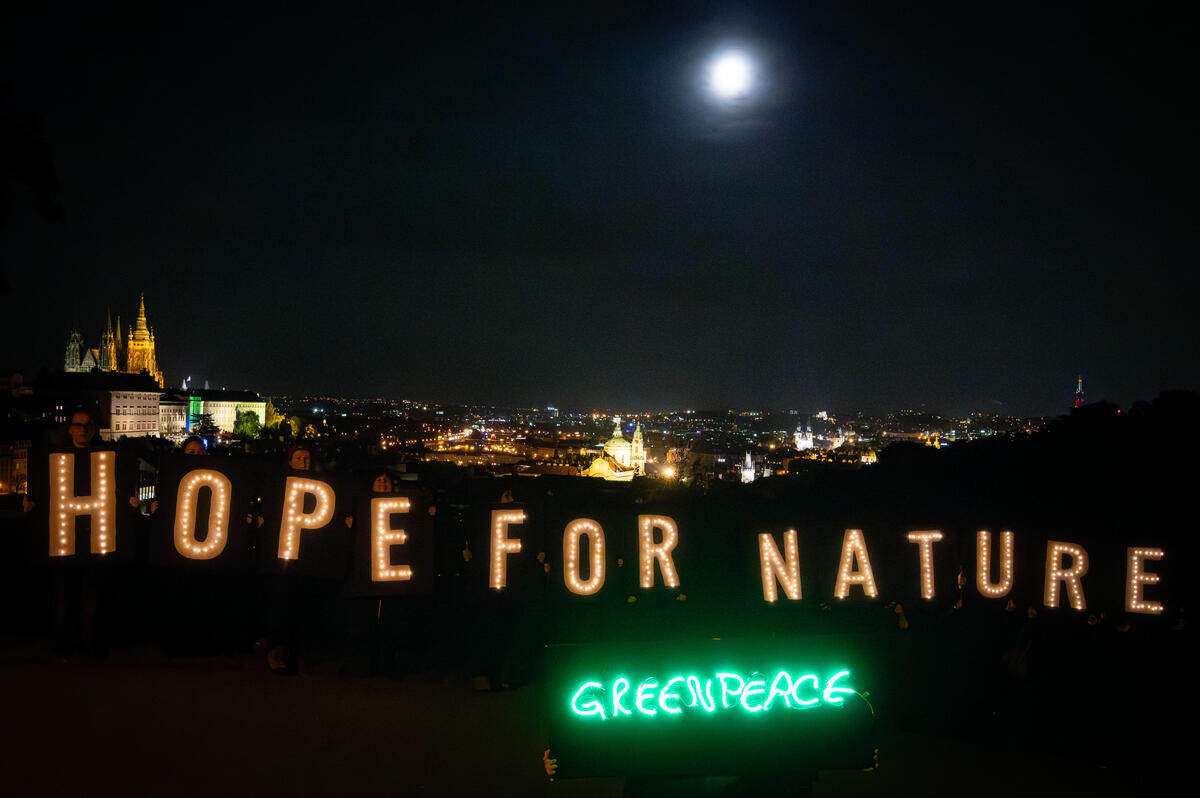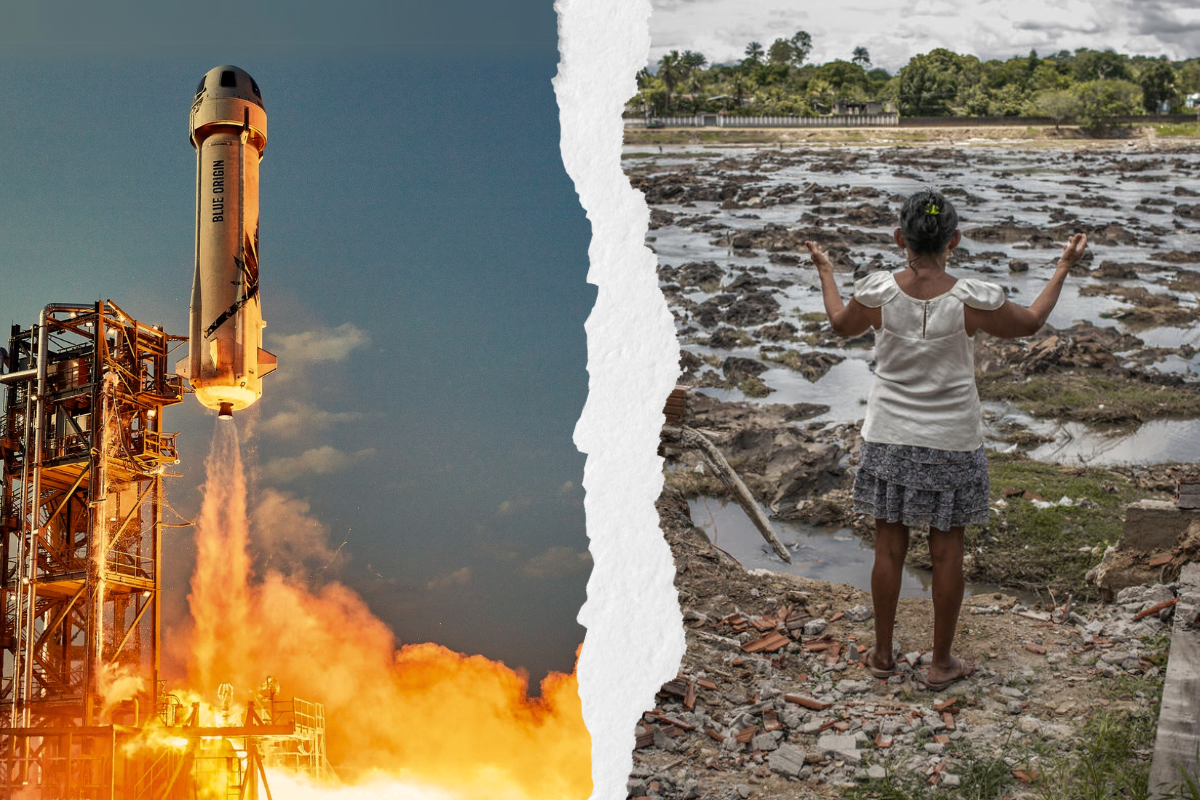Monday, 4 April – The Intergovernmental Panel on Climate Change (IPCC) Working Group III delivered the third part of the Sixth Assessment Report to world governments today.
Focusing on the ways to mitigate climate change, the latest report declares that solutions for meeting the Paris Agreement warming limit exist. However the solutions won’t materialise with governments’ current policies, which are setting us up for failure. We are living the critical years to halve global emissions by 2030, and set the course towards zero, now.
Kaisa Kosonen, Senior Policy Advisor, Greenpeace Nordic said:
“It’s game over for fossil fuels that are fuelling both wars and climate chaos. There’s simply no room for any new fossil fuel developments and the coal and gas plants we already have need to close early. While our leaders have been claiming they’re doing their very best on climate, the scientists have just proven they are not. There’s plenty of potential to do more right now, with huge benefits! Yet, money keeps flowing to problems instead of solutions, and it will only change with credible targets, policies and support aligned with the Paris Agreement warming limit.”
“That solar and wind have become the cheapest ways to produce power is a true game-changer! They can now clean our transport, buildings and industries with speeds once unthinkable, if allowed to. That is, if governments now push the fossil fuelled systems out of the way. Both the threats and the opportunities are bigger than ever. But so is the power of people who unite for change.”
Louise Fournier, Legal Counsel – Climate Justice and Liability, Greenpeace International said:
“In a historic first, the IPCC acknowledges the power of people going to court to assert their human rights in the face of the climate crisis. Governments, corporations and financial institutions, you’re officially on notice: align with the science and address fundamental injustices, or be forced to do so.
Estefanía González, Campaigns Coordinator, Greenpeace Chile said:
“We’re in a crisis of apathy. We need coordinated action between governments to reduce emissions and enact adaptation plans, and we need it fast. In Latin America, the link between social and environmental justice is only growing. We’re done with injustice. The latest science presents concrete solutions but they will come to nothing if we do not act now.”
Li Shuo, Global Policy Advisor, Greenpeace East Asia said:
“The science is clear. It is in the interest of all major emitters to enhance their climate ambition, both in targets and action. Without urgent action, we are unprepared for what is coming. The solutions are all captured in today’s report; it’s time to turn them into reality.”
Reyes Tirado, Scientist, Greenpeace Research Laboratories at the University of Exeter said:
“Protecting forests and ecosystems, stopping deforestation and shifting to plant-based diets in high income societies are essential to achieve a safe climate. The solutions to fix the broken food systems and secure nature protection have been made evident: significant increases in finance, ensuring the rights of Indigenous Peoples and local communities, and defending food sovereignty and rural livelihoods.”
Chiara Campione, Greenpeace Global Cities Project Co-lead said:
“Better cities are not only possible but necessary to make us safer while building resilience to climate change. The newest report emphasises to local governments: commit to investing and switching to clean energy and reducing consumption-based emissions. Cities can become a key battleground to save the climate but milestones for shared low-emissions, mobility for all, and more green spaces can no longer be postponed.”
According to the IPCC, solutions exist for at least halving global greenhouse gas emissions by 2030, in line with the Paris Agreement warming limit, with more than half of the potential coming at low or even negative costs. In addition to the vital role of solar, wind, electrification and efficiency, the report underlines the importance of restoring and protecting forests and other natural ecosystems, improving carbon sequestration in agriculture and shifting diets. Money exists to solve the problems but more public and private funding still flows to fossil fuels than for climate solutions. To achieve the needed emission cuts in the near future, financial flows to solutions will need to multiply as they cease for fossil fuels, as there’s no room for new fossil fuel infrastructure.
Today’s report confirms that countries’ climate plans and policies are not in line with the Paris Agreement warming limit, only further increasing inequity and impacting communities already made more vulnerable by the climate crisis. The report’s conclusions provide the framework to governments on how to meet the promises made last year in Glasgow at the UN climate summit, where they agreed to revisit their national mitigation targets by the end of 2022. The next summit, COP27 in Egypt later this year, is where countries will have to respond to the IPCC findings on the continuous lack of action.
The Working Group III report is the third contribution to the IPCC Sixth Assessment and complements the reports from Working Group I on the physical science of climate change and Working Group II on impacts, adaptation and vulnerability. The full story of the IPCC Sixth Assessment Report will be brought together by the Synthesis Report in October.
ENDS
Experts available for comment.
Independent Greenpeace Key Takeaways briefing from Mitigation of Climate Change (AR6 WGIII) report available here.
Images: Images and videos of climate change impacts are available from the Greenpeace Media Library.
Contact:
Gaby Flores, [email protected], +1 214 454 3871
Greenpeace International Press Desk, [email protected], +31 20 718 2470
(24 hours)



